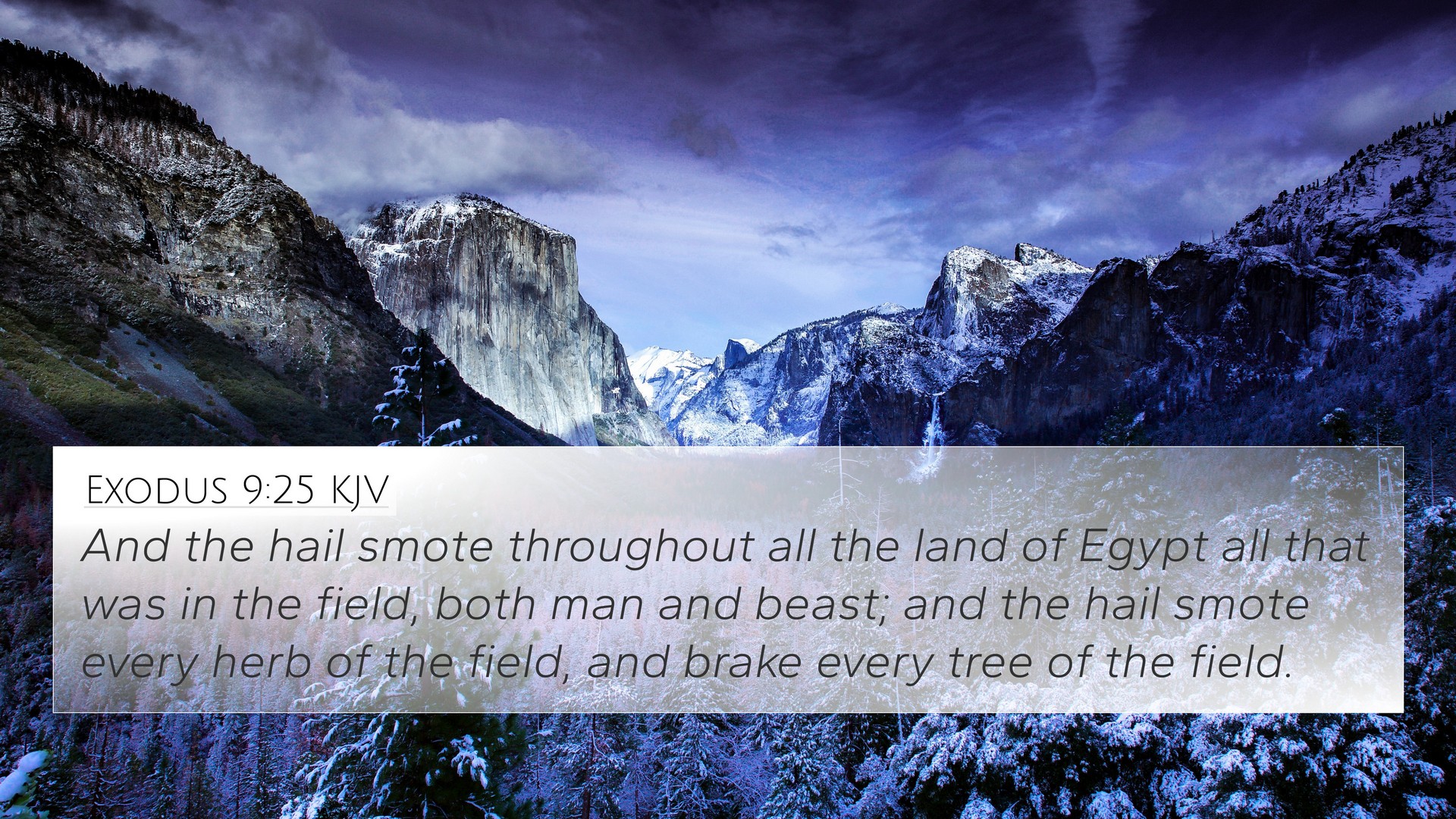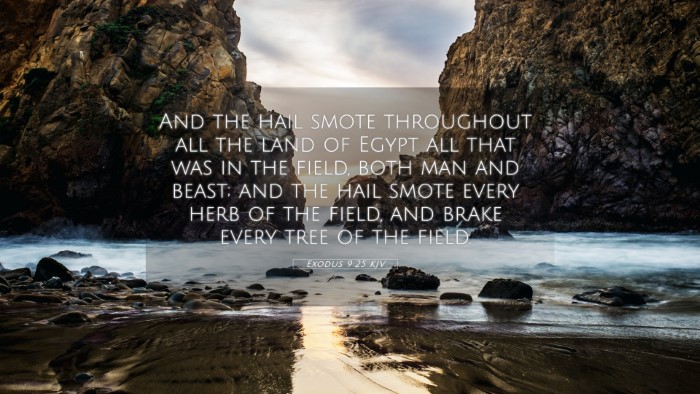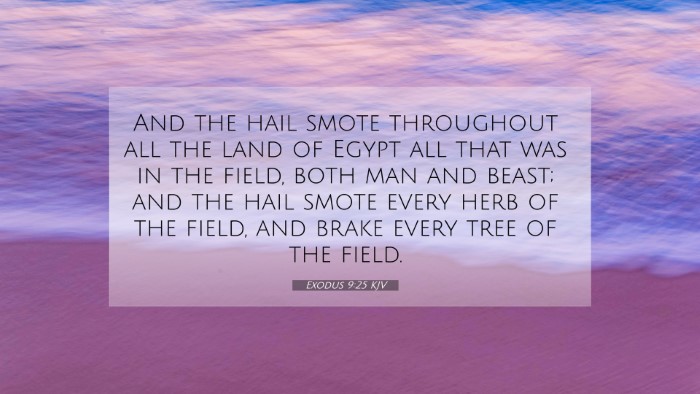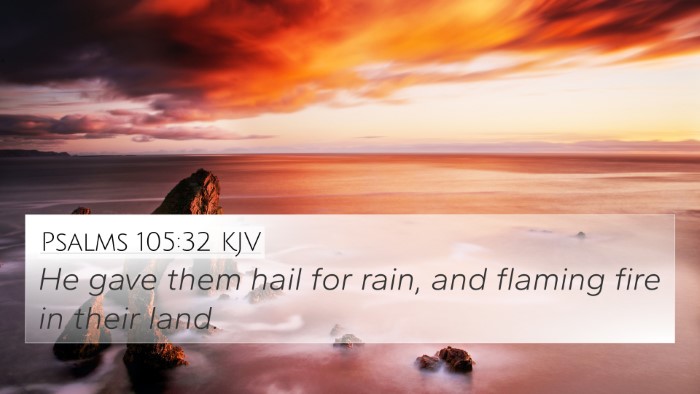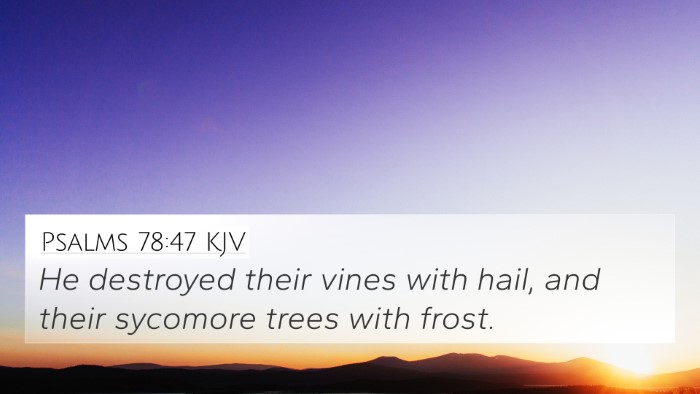Understanding Exodus 9:25
Exodus 9:25: "And the hail smote throughout all the land of Egypt, all that was in the field, both man and beast; and the hail smote every herb of the field, and brake every tree of the field."
The verse serves as a vivid account of God's power and judgment during the plagues of Egypt, highlighting the severity of the Fifth Plague. Below is a synthesis of commentary insights:
Commentary Insights
- Matthew Henry: Henry emphasizes the total devastation caused by the hail, which serves as a testament to God's displeasure against Pharaoh and his unyielding heart. This act signifies God's ultimate authority over nature and His ability to control the elements to achieve His purpose.
- Albert Barnes: Barnes notes that the hail's destructive power mirrored the greater spiritual destruction wrought by sin. He points out that the hail fells the crops, thereby indicating how God's fury can affect even the livelihood of the oppressor, embodying a demonstration of divine wrath.
- Adam Clarke: Clarke expands on the imagery within this verse by illustrating the stark contrasts between nature's obedience to God's commands compared to Pharaoh's obstinacy. He ties the judgment of hail to principles of accountability; those who rebel against God often invite their own downfall.
Thematic Connections
This passage carries significant thematic connections to various other Bible verses:
- Job 38:22-23: "Hast thou entered into the treasures of the snow? or hast thou seen the treasures of the hail, which I have reserved against the time of trouble, against the day of battle and war?" This verse reflects God's sovereignty over natural phenomena.
- Psalm 78:47-48: "He destroyed their vines with hail, and their sycomore trees with frost." This serves as a historical reminder of God's past judgments that align with the current narrative in Exodus.
- Isaiah 28:2: "Behold, the Lord hath a mighty and strong one, which as a tempest of hail and a destroying storm." This verse prophecies the coming of divine judgment, reinforcing the theme of God's might.
- Revelation 16:21: "And there fell upon men a great hail out of heaven, every stone about the weight of a talent; and men blasphemed God because of the plague of the hail." This imagery connects the plagues in Exodus with the eschatological themes of divine judgment.
- Exodus 10:21-22: Preceding this event is another demonstration of God’s authority where darkness fell upon Egypt, reflecting the phases of God’s power against the land.
- Jeremiah 51:16: "When he uttereth his voice, there is a multitude of waters in the heavens; and he causeth the vapors to ascend from the ends of the earth; he maketh lightnings with rain, and bringeth forth the wind out of his treasures." This verse aids in showcasing God’s command over nature.
- Acts 17:24-25: "God that made the world and all things therein... giveth to all life, and breath, and all things." This serves as a reminder of God’s sovereignty, which encompasses all creation, including the forces of nature.
Application and Reflection
The lesson drawn from Exodus 9:25 extends beyond historical reflection. It is about understanding God's omnipotence and justice. For modern readers, this encourages contemplation on:
- The nature of God's judgment: Reflect on how divine retribution works in human contexts.
- God's control over nature: Acknowledge that the natural world operates under divine authority.
- Human obstinance: Consider personal attitudes towards God's commands and the consequences of hardening one's heart against divine instructions.
Tools for Cross-Referencing
To delve deeper into the themes and connections found within scripture, consider employing these tools for Bible cross-referencing:
- Bible concordance for finding verses based on keywords.
- Bible cross-reference guide for thematic studies across different books.
- Cross-reference Bible study resources that align related verses for comprehensive understanding.
Conclusion
Exodus 9:25 stands as a powerful illustration of God's sovereignty and justice. Its connections to other Scriptures reinforce the themes of divine authority, the consequences of sin, and the hope for eventual deliverance. Through careful study and cross-referencing, believers can gain a holistic understanding of God's word and its implications for their lives.
